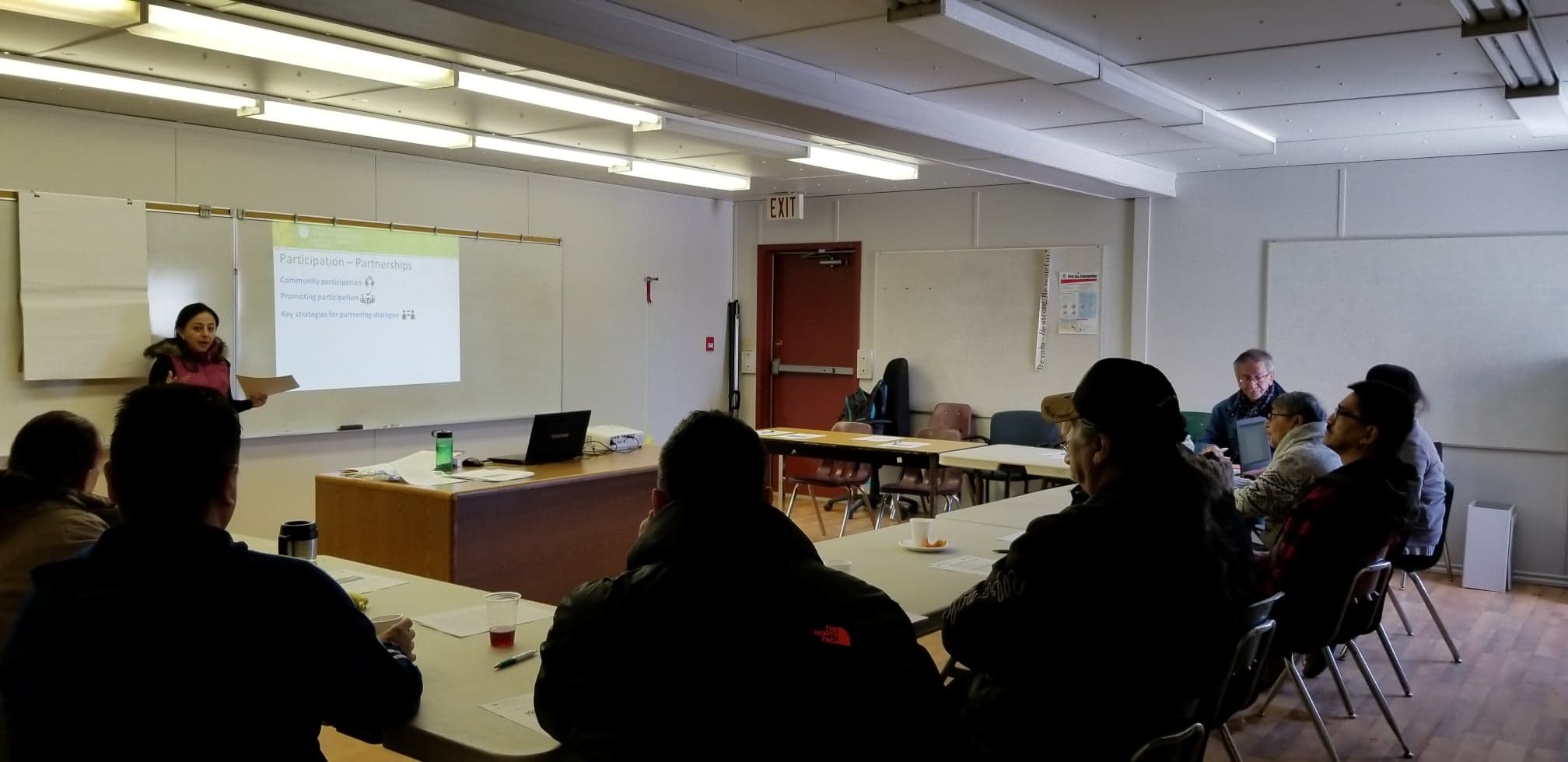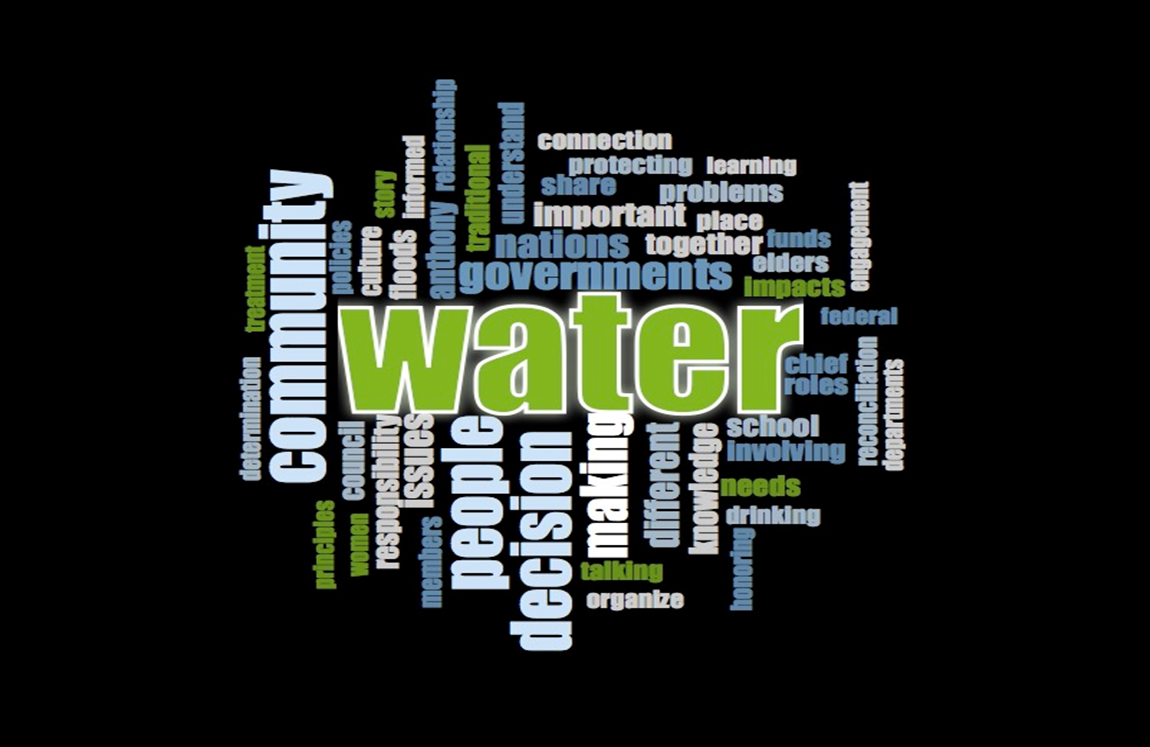Fostering Participation, Relationships, and Reconciliation
Collaborative water governance in Mistawasis Nêhiyawak
By Maria F. Mora
In Canada, water discussions are voicing the need to include different Indigenous worldviews, knowledges, and participation for dealing with current complex water issues. Participative processes, however, are not easy to develop. These processes require a better and deeper understanding of core concepts such as colonization, reconciliation, and self-determination.
This research focuses on building the meaning of water governance from the worldview of Mistawasis Nêhiyawak, and from this understanding, the meaning of reconciliation in water governance was revealed. The research followed the principles of community-based participatory research. As such, having the community’s interests present served as guiding points in the research. The research involved different field stages working with community members, including elders, leaders, women, and the youth through semi-structured interviews and focus groups.
In Mistawasis, water governance was identified as a collaborative process aiming to honour the sacredness of water as a spirit and entity deserving respect because it provides life to living beings including humans. The perspective of sacredness provided a different basis to build the water governance framework. This framework required: the incorporation of core principles; the recognition of the Nêhiyawak identity and knowledge; and the importance of building bridges for dialogue, understanding, cooperation, and decision-making between different perspectives on and off reserve.
The water governance approach built from Mistawasis worldview and experiences show the practice of reconciliation, in a context where the concept’s meaning is controversial, and the practice of this concept is still undefined. In Mistawasis, reconciliation was bounded for some people to the history of residential schools with a poor meaning of recognition, conciliation, encounters between different experiences and backgrounds, and living in diversity.

Nonetheless, other people found hope in this word. Mistawasis has built its own encounters and processes of reconciliation through honouring water and building strong partnerships to deal with the water problems they face. These partnerships are based on relationships with indigenous and non-indigenous partners, meeting together as ‘responsibility-holders’ at the same table with level and meaningful participation and collaboration. The experience in Mistawasis provides important insights for discussing water governance in Canada. Such insights were realized through de-constructing important concepts, including water, governance, and reconciliation, and co-constructing their meaning in the context of the community values.

Maria F. Mora is a Ph.D. candidate in the School of Environment and Sustainability at the University of Saskatchewan. Her research interest centres on understanding complex multicultural spaces through the concept of critical interculturality. She is originally from Ecuador and currently, she is writing her doctoral research results and working for the Redberry Lake Biosphere Region on community-based projects.

